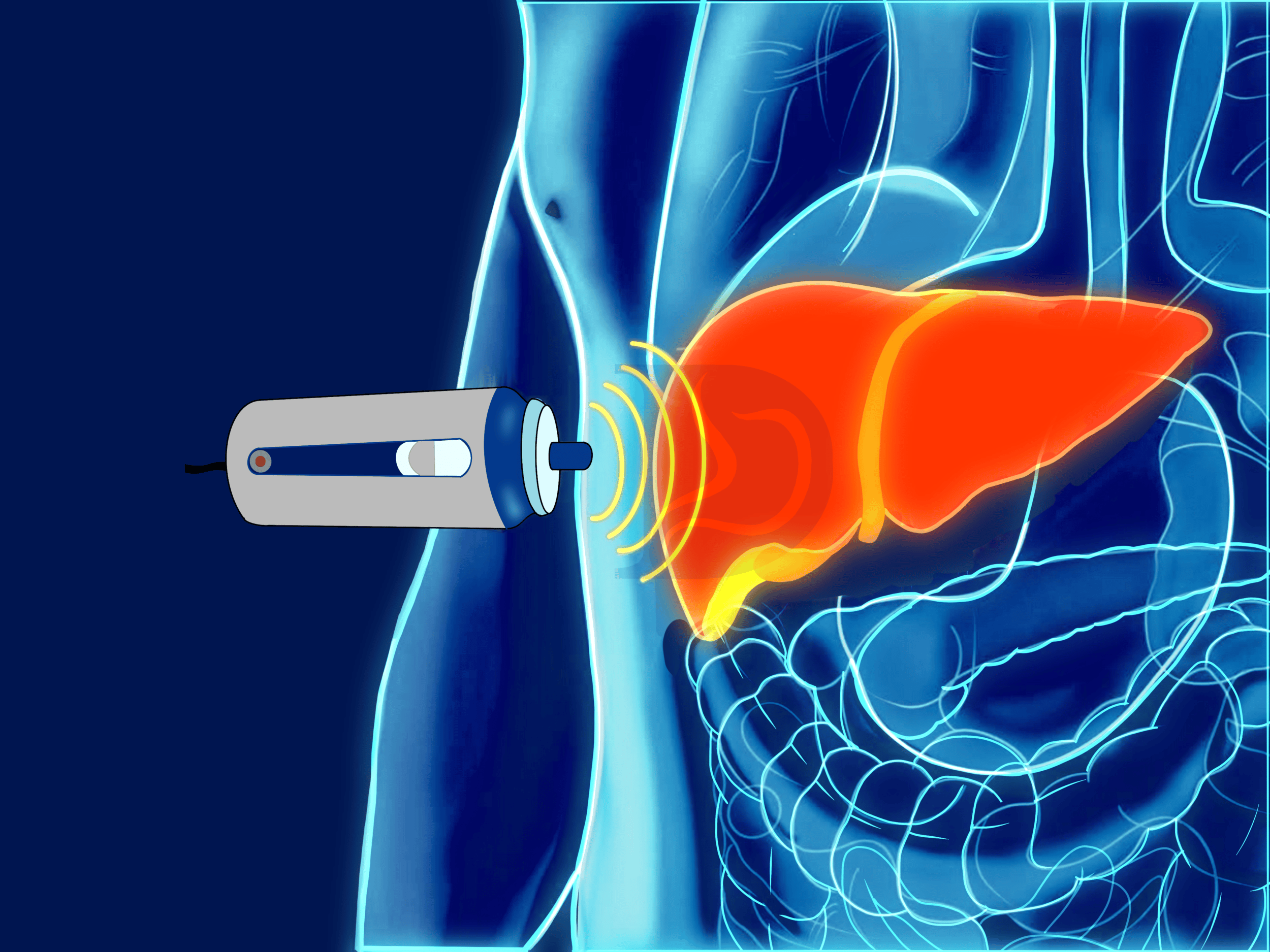A Fibroscan, also known as transient elastography, is a non-invasive medical test that uses sound waves to assess the liver for signs of fibrosis or scarring. It is commonly used to evaluate the liver in people with conditions such as hepatitis or non-alcoholic fatty liver disease (NAFLD).

During the test, a technician will apply a small amount of gel to your abdomen and then move a device called a transducer over your skin. The transducer sends out a low-frequency vibration, which travels through the liver tissue and is measured by the device. The results are displayed on a computer, and the stiffness of the liver tissue can be determined based on the speed at which the vibration travels through the tissue.
The test is usually painless and takes about 10 to 20 minutes to complete. You may be asked to hold your breath at certain points during the exam to get the best results.
Your provider at Digestive & Liver Health Specialists may recommend a Fibroscan if you are experiencing symptoms such as abdominal pain, bloating, or changes in bowel habits, or if you have a family history of liver disease. The test can help your doctor determine the severity of liver fibrosis and assess the effectiveness of treatment for conditions such as hepatitis or NAFLD.
It is important to follow any instructions your doctor gives you before the test, such as fasting for a certain period of time or avoiding certain medications. You may also be asked to wear a gown during the exam.
Frequently asked questions about Fibroscan:
Q: Is a Fibroscan painful?
A: No, the test is generally not painful. You may feel slight pressure from the transducer as it is moved over your skin, but this should not be painful.
Q: Do I need to prepare for a Fibroscan?
A: Your provider may give you specific instructions on how to prepare for the test. This may include fasting for a certain period of time before the exam, avoiding certain medications, or drinking plenty of fluids. It is important to follow these instructions to ensure that the test is as accurate as possible.
Q: Can I eat or drink before a Fibroscan?
A: You may be asked to fast for a certain period of time before the test, depending on your specific circumstances. Your provider will provide you with specific instructions on what you should and should not do before the exam.
Q: How long does a Fibroscan take?
A: The test typically takes about 10 to 20 minutes to complete.
Q: What will I need to do during the test?
A: During the test, you will be asked to lie on your back on an examination table. The technician will apply a small amount of gel to your abdomen and then move the transducer over your skin. You may be asked to hold your breath at certain points during the exam to get the best results.

